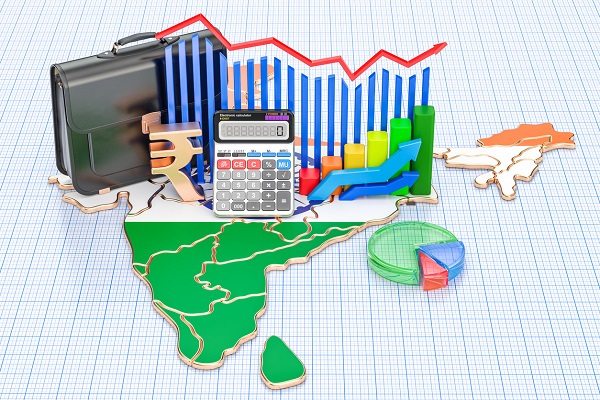.png)
The Morning Edge: Trump Demands Iran’s Surrender; Fed Weighs Economic Risks Amid Rising Tensions
A newsletter designed to prepare you for the day, offering a concise summary of overnight developments and key events ahead that could influence your workday.

June 18, 2025 at 1:28 AM IST
QUICK SNAPSHOT
Global Sentiment: Risk-off
Factors: Israel-Iran conflict
TODAY’S WATCHLIST
- US Fed interest rate decision
- SEBI Board meeting
THE BIG STORY
As explosions echoed over Tel Aviv in the early hours of Wednesday, an Israeli military official confirmed that nearly all the 10 ballistic missiles fired from Iran had been intercepted. The Israel-Iran air war raged into its sixth day, with tensions escalating further after US President Donald Trump issued a stark warning to Tehran. Taking to Truth Social, Trump declared that Iran must submit to an "UNCONDITIONAL SURRENDER!" while ominously noting that the US knew the whereabouts of the country’s Supreme Leader. "We are not going to take him out (kill!), at least not for now... Our patience is wearing thin," he wrote. His remarks signalled a potential shift toward a more aggressive US stance, even as officials monitored whether the conflict would draw Washington deeper into the fray.
Meanwhile, Federal Reserve officials convened monetary policy meet on Tuesday to analyze new economic data regarding potential impacts of current policies. The central bank is expected to maintain interest rates at 4.25%-4.50%, continuing its cautious approach until the effects of proposed tariffs and fiscal measures become clearer. Officials are considering whether these policies might influence inflation or economic growth. Currently, the Fed remains in a wait-and-see stance, despite calls for immediate rate cuts.
DATA
US retail sales fell 0.9% in May, the steepest drop since January, as consumers cut back on big-ticket purchases, especially motor vehicles, after a tariff-driven surge earlier in the year. The decline, following a downwardly revised 0.1% dip in April, suggests a cooling in domestic demand, even as solid wage growth continues to support overall spending. Year-on-year, sales were still up 3.3%. Other data showed a decline in factory output outside of motor vehicles, reinforcing signs of softer economic momentum. Still, economists estimate April-June consumer spending is tracking a 2.0% annualised pace, and the Atlanta Fed expects GDP to rebound at a 3.5% rate, helped by a sharp drop in imports after earlier frontloading fizzled.
WHAT HAPPENED OVERNIGHT
US stocks ended in the red on Tuesday, pressured by escalating tensions in the West Asia and policy uncertainty around clean energy incentives. The Israel-Iran conflict extended into its fifth day, fuelling investor anxiety as the US deployed fighter jets to the region amid fears of disruptions to oil exports. Energy and defence stocks were mixed, with defence names such as Lockheed Martin gaining 2.6%. However, solar stocks took a sharp hit after Senate Republicans proposed phasing out solar, wind, and energy tax credits by 2028 as part of revisions to President Trump’s tax-cut bill. Enphase Energy plummeted 24%, while Sunrun plunged 40%. In corporate news, Eli Lilly slipped 2% following its announcement to acquire Verve Therapeutics for up to $1.3 billion.
US Treasury yields declined across the curve on Tuesday, with the long end falling as much as 7 basis points in a bull-flattening move. The yield on the 10-year note eased to 4.4%, pulling back after two days of gains, as investors digested a mix of geopolitical and economic signals ahead of the Federal Reserve’s rate decision. A sharply weaker-than-expected 0.9% drop in May retail sales raised concerns over consumer strength, while industrial output slipped 0.2%, surprising markets. Heightened tensions between Israel and Iran also contributed to the bid for safe-haven assets, alongside strong demand in a $23 billion auction of 5-year TIPS. With the Fed expected to keep rates unchanged, markets are now focused on updated projections and any clues on future rate paths amid growing signs of economic deceleration.
The US dollar regained ground against the yen on Tuesday, buoyed by lingering geopolitical tensions and cautious optimism ahead of the Federal Reserve’s policy decision. Despite softer-than-expected May retail sales, steady wage growth kept consumer spending resilient, helping the dollar stabilise. The dollar index held firm above 98, supported by safe-haven demand following President Trump’s call for a full evacuation of Tehran amid ongoing Israeli airstrikes. Meanwhile, the euro stayed close to $1.16, its highest since November 2021, as investors compared the ECB’s hawkish stance with the Fed’s likely pause.
Brent crude oil prices jumped over 4% on Tuesday, driven by escalating tensions between Iran and Israel, even as key energy infrastructure and supply routes remained largely unaffected. Brent crude settled at $76.45 per barrel, up $3.22 or 4.4%, while US WTI rose $3.07 or 4.28% to $74.84. Traders remain on edge over the risk of wider regional disruption, keeping crude markets highly sensitive to geopolitical headlines.
Day’s Ledger
Economic Data:
- Japan May trade data
- UK May inflation rate
- US weekly jobless claims data
- US weekly crude oil inventories data
- US May housing starts data
- Eurozone May Core CPI data
Corporate Actions:
- Jan-Mar earnings: Milestone Furniture
- DJ Mediaprint to consider warrant conversion
- Highways Infrastructure to consider fund raising
- Murae Organisor to consider bonus shares
- Shelter Pharma to consider raising fund
- Vedanta to consider dividend
Policy Events
- US Fed interest rate decision
- SEBI Board meeting
- ECB's Elderson speaks
- ECB's De Guindos speaks
- BoC Gov Macklem speaks
- German Buba President Nagel speaks
- ECB's Lane speaks
TICKERS
- ALEMBIC PHARMA issued $22 million corporate guarantee for US arm’s term loan with JPMorgan. Valid for 4.5 years.
- BAJAJ FINANCE allotted 4.97 billion bonus shares in 4:1 ratio, raising paid-up capital to 6.21 billion shares of face value ₹1.
- BHARAT FORGE tied up with France’s Turgis Gaillard to manufacture Aarok surveillance drones for Indian defence. Will set up local production to ensure long-term support and sovereignty.
- CG POWER secured ₹6.41 billion order from Power Grid Corp. to supply and service 765kV transformer package under Lot-4 procurement plan. Execution timeline is 18–36 months.
- DELHIVERY informed that CCI approved ₹14.07 billion acquisition of 99.44% in Ecom Express. Deal expected to close within six months of SPA execution.
- GMR AIRPORTS informed that May passenger traffic rose 0.8% on year to 10.02 million, held back by Delhi disruptions. Hyderabad hit record monthly high at 2.79 million. YTD traffic up 4.5% on year to 20.4 million.
- HINDUSTAN ZINC board approved ₹120 billion capex for new 250,000-tonne zinc complex at Debari, Rajasthan. To be completed in 36 months; funding via accruals and debt.
- MAHINDRA AEROSTRUCTURES signed $300 million deal with Aernnova Aerospace to supply metal sub-assemblies for Airbus and Embraer aircraft. Will ship to Spain, UK, Portugal, and Brazil.
- MAHINDRA & MAHINDRA informed that CCI cleared ₹5.55 billion controlling stake purchase in SML Isuzu. Total deal value may hit ₹11.40 billion after open offer. Aims to lift CV market share to over 20% by FY36.
- NEULAND LABS got SEBI warning over insider trading violation by designated employee. No material impact on financials or operations.
- NCLT approved Zebronics’ ₹520 million resolution plan for iBall. Approval followed 98.45% CoC vote. Axis, IDBI, and HDFC Bank are creditors.
- PNB sold entire 20.9% stake in India SME ARC for ₹340.46 million to Authum. RBI approved sponsor change and equity raise in March.
- POLYCAB signed ₹64.48 billion BharatNet contract with BSNL for Karnataka, Goa, and Puducherry. Capex ₹37.42 billion, Opex ₹27.05 billion. 3-year execution, 10-year maintenance.
- RAILTEL got LoI worth ₹439.9 million from ZEDCL for Mizoram fibre grid rollout. Completion target: Sept. 5, 2026.
- TVS MOTOR acquired 1% more in TVS Supply Chain via ₹568.8 million NSE block deal at ₹144/share. Stake now at 5.3%. Shares offloaded by Authum.
MUST READS
- Air India's Boeing 787 fleet compliant with existing safety standards: DGCA
- Israeli strikes damage Iran's main nuclear site at Natanz, says IAEA
- UGRO Capital to acquire Profectus Capital for Rs 1,400 crore deal
- India needs to try become indispensable like China: CEA Nageswaran
- Cement demand may be impacted in June due to early onset of monsoon: Ind-Ra
- Flip in derivatives expiry days: NSE to shift to Tuesday, BSE gets Thursday
- EU plans legally binding ban on Russian gas imports by end of 2027
- India to lead global oil demand growth by 2030 on economic expansion: IEA
- IMF Met With Emerging-Market Creditors on Debt Rework Strategies
- Salesforce Increases Prices as it Promotes New AI Features
- US pulls out of two more bases in Syria, worrying Kurdish forces



